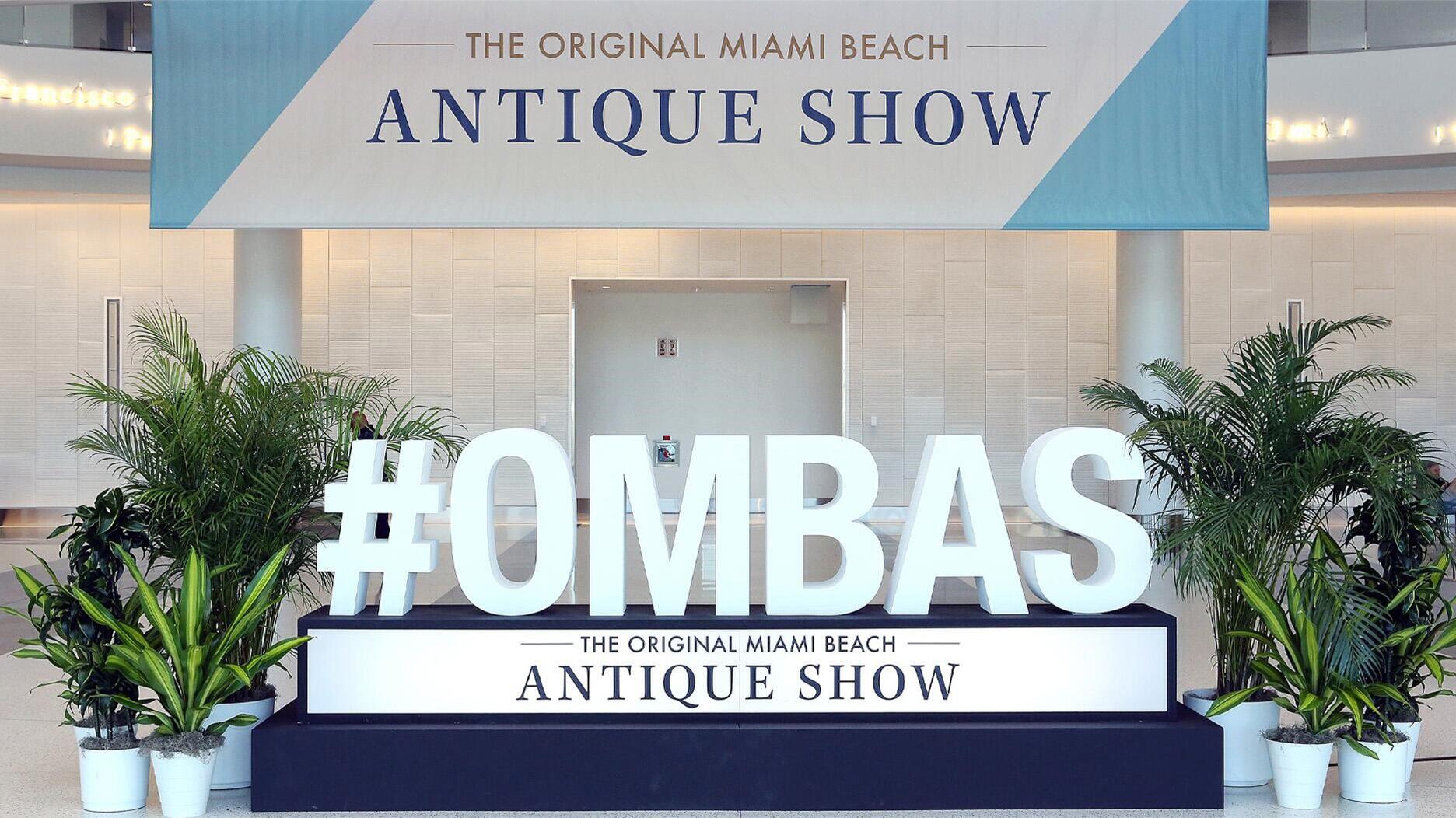In a 6-3 ruling, the court said the president exceeded his authority when imposing sweeping tariffs under IEEPA.
What Is the Future of Jewelry Trade Shows?
From inviting consumers in to applying artificial intelligence, the heads of the largest jewelry trade shows talk about the changing landscape.

The JCK Las Vegas Show, owned by Reed Exhibitions, is poised to return to the Sands next year, where it launched 26 years ago, just as Emerald Expositions opens a new jewelry trade show nearby.
The new Premiere show will join the Antique Jewelry & Watch Show (also an Emerald-produced event) at the Las Vegas Convention Center and will be joined by AGTA GemFair, which is decamping from JCK Las Vegas to join the antique show as well.
After moving to Mandalay Bay on the south end of The Strip in 2011, JCK is consolidating and moving back closer to the action. Its show in Vegas—once the entire game—is now part of a cluster of events that’s come to be known as Jewelry Market Week.
And Couture, Emerald Exposition’s high-end boutique designer show, is stealing much of the buzz.
“People were asking us for a special show in Vegas at the JA (New York show) level, a less-expensive alternative to Couture,” Gannon Brousseau, who runs Couture as well as the JA New York shows for Emerald, said. “We’re delivering maximum value for minimum expense. So they can come to Vegas and do business for essentially 50 percent of what they used to.”
It’s not just a Couture alternative, however, it’s a JCK alternative.
“Vegas is going to be a war for a while,” one jewelry industry insider said. “You’ve got Emerald Expositions going after the general business that Reed has at JCK, and Reed scurrying to get three- and five-year deals signed with major players to be at the Sands.”
It’s a “war” that comes at a time when jewelry trade shows worldwide are facing myriad challenges.
An Industry in Flux
Around the world, big jewelry trade shows are downsizing, smaller ones are opening, and vendors and retailers are dropping out and showing on their own.
“Jewelry trade shows face a challenging marketplace,” said David J. Bonaparte, the current president and CEO of Jewelers of America (which owns National Jeweler) who spent 17 years as a top executive with JCK Group Portfolio. “The big challenge for all of them is the cost. The industry is not the same as it was in the boom times.”
The reshuffling in Vegas is part of this worldwide shift in jewelry trade shows as attendance continues to decline, driven by slimmer profit
Whatever else they deliver, a trade show thrives on sales. The Smart Show is a good example of this.
Launched in Chicago in 2009, the show had good attendance for eight years. But by year seven, insiders say, retailers were buying less and less. Vendors weren’t getting orders, so they stopped coming.
Both retailers and exhibitors are economizing and becoming more selective about the shows they do. Some jewelers are opting to skip them entirely and instead relying on showrooms and buying groups to view and buy new merchandise, and exhibitors are renting hotel suites—together or separately—and sending out invitations.
Bonaparte describes it like this: “You’re seeing exhibitor groups, buying groups and then groups of exhibitors have gotten together saying if we operate this show together we can hit pockets of the country that might not travel to the big shows. It’s more cost-effective to travel to a resort for a few days and not spend a lot of money and make it worth it.”
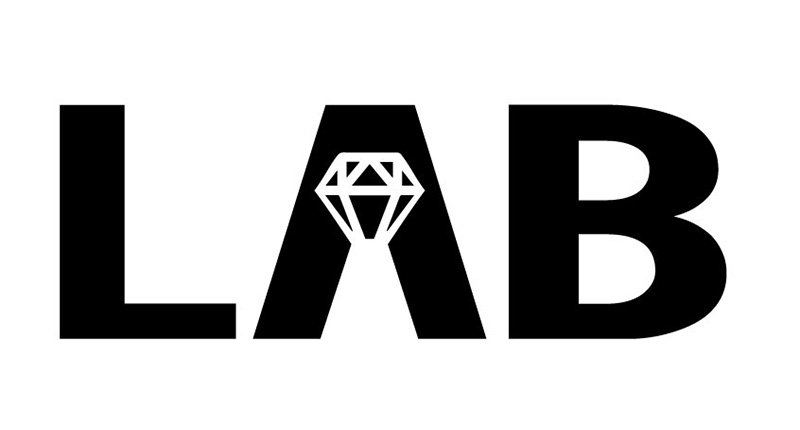
Show organizers, meanwhile, are striving to add value and incentives to lure people back.
What that means: Expect even more networking and educational events in Vegas this year.
JCK will have three new pavilions, for security (including cyber), antique and estate jewelry, and lab-grown diamonds. “Lab-grown diamonds are top-of-mind for everybody right now,” said Yancy Weinrich, who runs JCK Events.
Couture will be expanding its watch profile with more vendors, a new Couture Time party and the first national meetup of RedBar, a group for wristwatch collectors and enthusiasts. Couture is actually inviting those consumers into the jewery trade show, a first for it.
“It’s a grind for everybody right now. It’s interesting times, but there’s a lot of opportunity. There’s a lot of opportunity.” — Gannon Brousseau, senior vice president of the Jewelry Group at Emerald Expositions
Howard Hauben, who helped launch Couture, said he is doing well with Centurion, a winter version of Couture’s high-end designer salon experience in Scottsdale, Arizona, and Centurion South Beach, which he is now co-locating with the JIS show in Miami.
Like many in the industry, though, Hauben has his eye on the millennials. He doesn’t think enough is being done to nurture what he calls the “aspirational level” of the population.
“If people coming up in their careers don’t enter the picture, it’s bad for the whole industry,” Hauben said. “Jewelry is something you buy when you’re celebrating your life. There will always be a small percentage of people buying jewelry at the top income levels, but we can’t live on that. You have to have people celebrating their lives in numbers.”
Overseas, the Hong Kong Jewellery & Gem Fair is growing as fast as Baselworld was a few years ago, while Baselworld’s rapid and dramatic downsizing—and recent change in management—is sending tremors through the luxury watch and jewelry trade on both sides of the Atlantic.
Smaller shows, including SIHH and new jewelry trade shows GemGenève and Carat+ are staking their claim on disaffected Basel exhibitors.
Everywhere, exhibitors, retailers, and show organizers are poised for change, struggling to remain relevant and hold onto their piece of a shrinking pie.
“It’s a grind for everybody right now,” Brousseau said. “It’s interesting times, but there’s a lot of opportunity. There’s a lot of opportunity.”
Updating the ‘Super Mall’ Experience
If Couture and Centurion are the boutique jewelry-buying experiences, JCK is the one-stop shop, offering everything from equipment to high-end bridal and international pavilions.
“Yes, JCK is the super mall,” Weinrich said. “But we’re trying to make it the super mall with an experience—the new mall, not the old-school version that’s dying.”
“You aren’t just walking a mall now, you’re doing research,” she says. “If you find a product you like, you pull out your phone to see if you can get a better price. The phone is involved in every purchase. So we’re looking at ways to bring technology into the shows to create more efficient buying but also an experience.”
“We really believe matchmaking is the way of the future. It’s artificial intelligence, understanding your customers’ behavior, how they’re shopping the show, so you can help them do it more effectively.” – Yancy Weinrich, senior vice president, Reed Exhibitions
A few years ago, show organizers added “neighborhoods” and began matching buyers with vendors. Buyers are now required to answer questions at registration about types of products and price points they seek, and whether they plan to purchase on memo. Based on their answers, they are given 10 vendor recommendations.
This year, JCK is offering $50 American Express gift cards to those who use these recommendations and report back.
“We view it as a $200,000 marketing fee,” Weinrich said. “We really believe matchmaking is the way of the future. It’s artificial intelligence, understanding your customers’ behavior, how they’re shopping the show, so you can help them do it more effectively.”
Show organizers are also actively courting the consumer media, at vendor requests.
“Brands are not doing as many transactions as they were 10 years ago,” she said. “So what are they coming for? Brand exposure, face time with their customers, experience and learning. They want to be part of the industry.”
No Guarantees
In the past year, the number of jewelry stores in the United States has dipped slightly below 20,000, from a peak of 35,000.
“You’ve got fewer stores, and they’re making tighter merchandising decisions,” said Dan Kisch, executive director at SmartWork Media who once oversaw JA New York and then the Smart Show in Chicago.
“The last two years have shown you cannot be arrogant. You’re a trade show no matter what, and you need to look after your exhibitors.” — Stephen Webster, jewelry designer
“The market segment we’re serving has an amazing chance of long-term success,” Hauben says. “Jewelers that occupy that level tend to create business opportunities.”
There’s an amazing chance, yes, but no guarantees. All trade shows, regardless of target demographic, need to “look after” their exhibitors, as one jewelry designer put it.
The Baselworld watch and jewelry show caters to the higher end of the market, yet attendance dropped 30 percent from 150,000 in 2014 to about 100,000 last year. This spring, buyers found exhibitor space closed off and the exhibitor count at less than half what it was five years ago. The show was shortened from eight days to six.
The show’s official line is that the downsizing was a deliberate consolidation.
“The decision was made to focus on quality and to give the retailers a more concentrated fair, and that meant the best players in watches and jewelry and gemstones,” said Christian Jürgens, a show spokesman.
“That happens in retail as well. Most retailers who make good business do it with 50 to 80 brands, not 2,000, as in earlier times at Baselworld.”

“I think there were a lot of factors, including constructing an expensive new building and putting the cost on their exhibitors,” one industry insider said when asked about the dramatic downsizing of Baselworld. “They’re trying to retool. I don’t know where they’ll end up, but we all have our eyes on Basel.”
Baselworld was primarily a Swiss watch showcase when British jewelry designer Stephen Webster began exhibiting in 1999. Over the next 15 years, he saw the show expand to include every major luxury brand.
“Basel went from a trade show to something sexier and more glamorous,” he said. “It felt like a consumer show.”
At one point, Webster was spending 500,000 euros each year in Basel on himself and 14 staffers—hotels and restaurants are known to triple their prices during the show—while wining and dining buyers at exorbitant expense. But as the spectacle grew, his role in it seemed to diminish.
When he complained to organizers, Webster said, “they made it very clear Baselworld was no longer a place for me. I think now that would be quite different, but I would never go back.”
The following year a mass exodus began, with about 850 exhibitors dropping out by 2017.
“The last two years have shown you cannot be arrogant like that,” Webster said. “You’re a trade show no matter what, and you need to look after your exhibitors.”
The ‘Big Thing’
The primary allure of Couture for visitors and media is the jewelry itself.
Jewelers want to go to Couture if for no other reason than the jewelry makes their hearts soar.
“It’s the embodiment of the heart and soul of the designer who makes it,” said an industry insider. “As opposed to JCK where the jewelry is the kind most likely to sell through at retail, acre after acre of the same stuff.”
These days, Couture is the only trade show Webster does, and he has no plans to take on another. He spends a fraction of what he dropped at Basel to put up six or seven staffers at the Wynn Las Vegas, where Couture is held.
“That’s what trade shows need to be thinking about: How are we adding more value throughout the entire year?” — Gannon Brousseau, senior vice president of the Jewelry Group at Emerald Expositions
Brousseau can always be found wandering the jewelry trade show and chatting up vendors.
Like Webster, he refers to Couture as a community. The brand has managed to keep that sense of community, and buzz going year-round.
Couture jumped on Instagram in 2013 and built their following before the algorithm changed.
They were among the first to introduce takeovers, starting with one by designer Irene Neuwirth that garnered 900 followers in two days. Now, they have more than 100,000.
In the process, @by_couture has become a phenomenon that not only connects designers with retailers, but with media and consumers as well.
“That’s the big thing, really,” Brousseau said. “How does a trade show connect and cultivate their relationships beyond the five or six days in Las Vegas?
“That’s what trade shows need to be thinking about: How are we adding more value throughout the entire year?”
The Latest

Smith encourages salespeople to ask customers questions that elicit the release of oxytocin, the brain’s “feel-good” chemical.
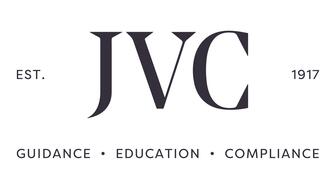
JVC also announced the election of five new board members.
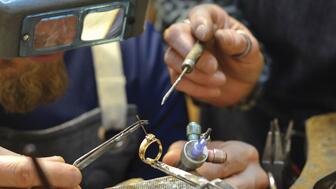
Launched in 2023, the program will help the passing of knowledge between generations and alleviate the shortage of bench jewelers.
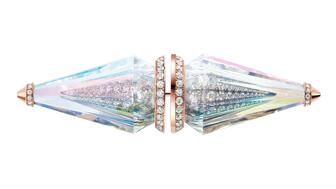
The brooch, our Piece of the Week, shows the chromatic spectrum through a holographic coating on rock crystal.


Raised in an orphanage, Bailey was 18 when she met her husband, Clyde. They opened their North Carolina jewelry store in 1948.

Material Good is celebrating its 10th anniversary as it opens its new store in the Back Bay neighborhood of Boston.

Criminals are using cell jammers to disable alarms, but new technology like JamAlert™ can stop them.
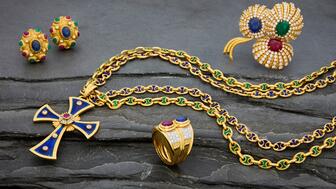
The estate of the model, philanthropist, and ex-wife of Johnny Carson has signed statement jewels up for sale at John Moran Auctioneers.

Are arm bands poised to make a comeback? Has red-carpet jewelry become boring? Find out on the second episode of the “My Next Question” podcast.
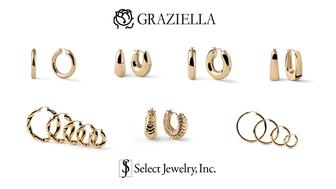
It will lead distribution in North America for Graziella Braccialini's new gold pieces, which it said are 50 percent lighter.
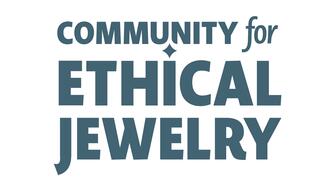
The organization is seeking a new executive director to lead it into its next phase of strategic growth and industry influence.
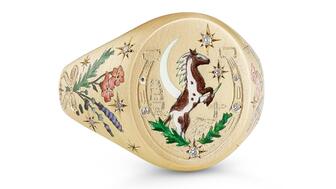
Western wear continues to trend in the Year of the Fire Horse and along with it, horse and horseshoe motifs in jewelry.
![A peridot [left] and sapphires from Tanzania from Anza Gems, a wholesaler that partners with artisanal mining communities in East Africa Anza gems](https://uploads.nationaljeweler.com/uploads/cdd3962e9427ff45f69b31e06baf830d.jpg)
Although the market is robust, tariffs and precious metal prices are impacting the industry, Stuart Robertson and Brecken Branstrator said.

Rossman, who advised GIA for more than 50 years, is remembered for his passion and dedication to the field of gemology.
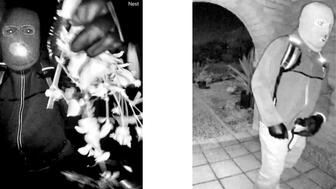
Guthrie, the mother of “Today” show host Savannah Guthrie, was abducted just as the Tucson gem shows were starting.

Butterfield Jewelers in Albuquerque, New Mexico, is preparing to close as members of the Butterfield family head into retirement.
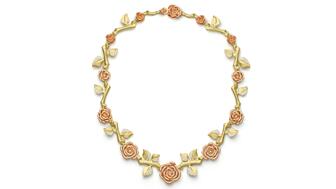
Paul Morelli’s “Rosebud” necklace, our Piece of the Week, uses 18-karat rose, green, and white gold to turn the symbol of love into jewelry.

The nonprofit has welcomed four new grantees for 2026.

Parent company Saks Global is also closing nearly all Saks Off 5th locations, a Neiman Marcus store, and 14 personal styling suites.
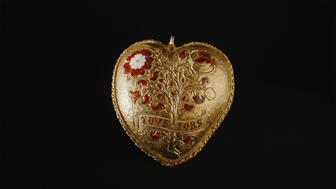
It is believed the 24-karat heart-shaped enameled pendant was made for an event marking the betrothal of Princess Mary in 1518.
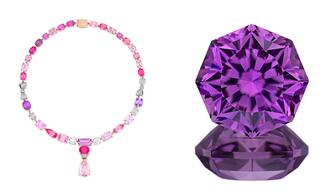
The AGTA Spectrum and Cutting Edge “Buyer’s Choice” award winners were announced at the Spectrum Awards Gala last week.
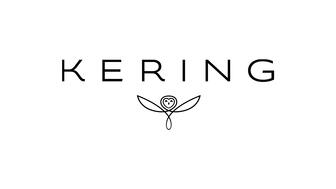
The “Kering Generation Award x Jewelry” returns for its second year with “Second Chance, First Choice” as its theme.
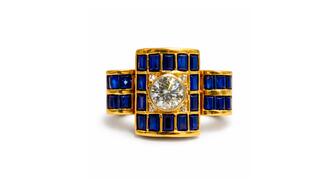
Sourced by For Future Reference Vintage, the yellow gold ring has a round center stone surrounded by step-cut sapphires.
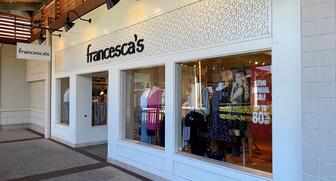
The clothing and accessories chain announced last month it would be closing all of its stores.

The “Zales x Sweethearts” collection features three mystery heart charms engraved with classic sayings seen on the Valentine’s Day candies.

The event will include panel discussions, hands-on demonstrations of new digital manufacturing tools, and a jewelry design contest.









